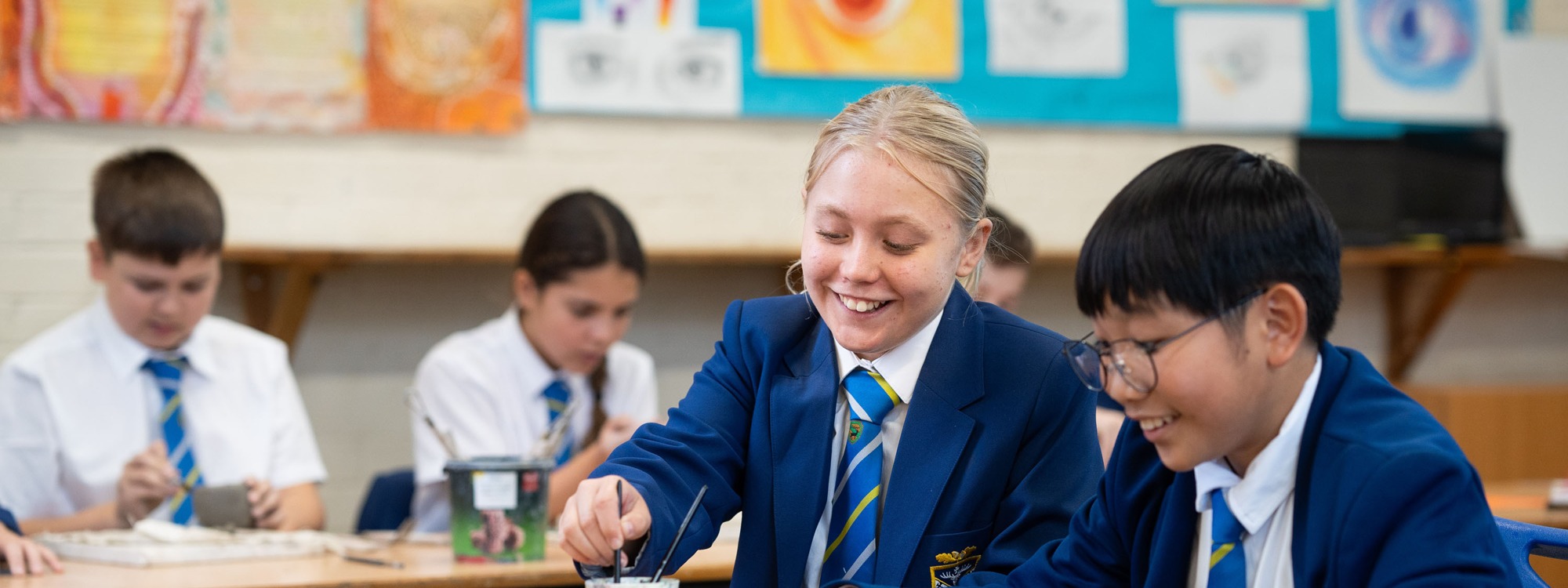- Home
- Parents
- Subject Information
- Geography
Geography
"Geography is a subject which holds the key to our future." - Michael Palin
Subject Overview
Geography at The Forest School is designed to ensure all students become global citizens, fully aware of the issues and challenges that face the world and equipped with the knowledge and skills to make a real difference. The Geography curriculum is designed to develop the potential of every child to empower and inspire them to become actively engaged in addressing the environmental, economic and social issues that exist at different scales.
Our high-quality geography education utilises geographical enquiry as a toolkit to extend students’ rich knowledge, understanding and skills to analyse and understand the world around them, both at an individual or local level as well as nationally and internationally.
Geography in our school is complemented by other Humanities subjects and benefits greatly from a centrally planned curriculum and quality first teaching that has the highest expectations of students’ progress and achievement.
Curriculum Intent
The Geography Curriculum at The Forest School aims to ensure that every student can Aspire to Become Elite by:
- Developing contextual knowledge of the physical environment and how it is influenced by human and natural interactions
- Understanding the challenges faced by people in rural and urban areas through diverse case studies
- Building confidence in geographical skills such as data collection and analysis, fieldwork, source analysis and communication.
- Assessing the impact of human activity on our world, and creating sustainable solutions to manage the negative effects of development.
Geography contributes to the school’s ASPIRE ethos by:
- The curriculum encourages the acquisition of knowledge and challenges the perceptions students have. For example stereotypes on African countries, immigration to the UK as well as ecocentrism in the debates on sustainability.
- Students are challenged to develop their own arguments. They need to justify their stance in a structured and logical manner, applying a range of geographical information as evidence.
- Encouraging independent learning, supported by resources such as GCSE Pod and Google Classroom.
- Students with different talents are encouraged to work within groups, allowing everyone the opportunity to contribute and develop.
Curriculum Implementation and Impact
In Years 7-8, students have a weekly 100 minute lesson delivered by a subject specialist. Students complete a baseline assessment at the beginning of Year 7, with progress measured thereafter through ongoing teacher assessment in lessons. End of module assessments receive a percentage score and a progress grade, enabling students and families to reflect on progress each half term.
In Years 9-11, students who have opted for GCSE Geography complete 3x100 minute lessons each fortnight delivered by a subject specialist. Students receive ongoing teacher assessment and feedback, which helps to support their progress towards graded end of module assessments. Students will complete end of year exams in Years 9 and 10, with two mock exams in Year 11 taken in the Autumn and Spring Terms.
In Years 12-13, students who have opted for A Level Geography complete 5x100 minute lessons each fortnight. Human and physical geography input is delivered by a specialist in each field. Students complete graded end of module assessments, with ongoing progress measured by a range of teacher assessments.
All resources are planned through collaboration across the Geography Department and regularly updated.
Key Stage 3 (Years 7–8):
Year 7: Introduction to the UK, People of the UK, Our Living World, Our Unequal World, Focus on Africa, Coasts.
Year 8: Our Physical World, Geology and Tourism, World Cities, Challenges to the UK, UK Weather and Climate, Global Issues.
Key Stage 4 (Years 9 - 11) - GCSE Geography (AQA):
Year 9: Rivers, Resource Management, Energy Resource Management, Urban Issues, Urban Fieldwork
Year 10: Challenges of Natural Hazards, The Living World, Coasts, Coastal Fieldwork.
Year 11: Changing Economic World; Geographical Issues investigation, end of course consolidation and revision.
Key Stage 5 (Years 12–13) - A Level Geography (Edexcel):
Human Geography - Globalisation, Regeneration of Places, Superpowers, Migration, Identity and Sovereignty
Physical Geography - Tectonic Processes and Hazards, Coastal Processes and Landscapes, Water Cycle and Insecurity, Carbon Cycle and Insecurity
Enrichment Opportunities
A wide range of enrichment activities are undertaken across the curriculum, such as visits to Cheddar Gorge, coastal fieldwork (Hengistbury Head in July 2025), urban regeneration enquiries and Iceland.
Curious about the curriculum
A wide range of outstanding resources to further studies in Geography can be found on BBC iPlayer and paid services such as Netflix. For example, travel documentaries such as Scandinavia with Simon Reeve (BBC) and The Americas (BBC) will undoubtedly ignite a love of geography and the world around us but would not typically be shown in full in class.
Looking for something to read
- Prisoners of Geography by Tim Marshal
- We Are Displaced: My Journey and Stories from Refugee Girls Around the World - by Malala Yousafzai
- Horrible Geography by Anita Ganeri.
Contact Information
If you'd like to find out more please contact Mr B Wilcox, Subject Leader on bwilcox@forest.academy
